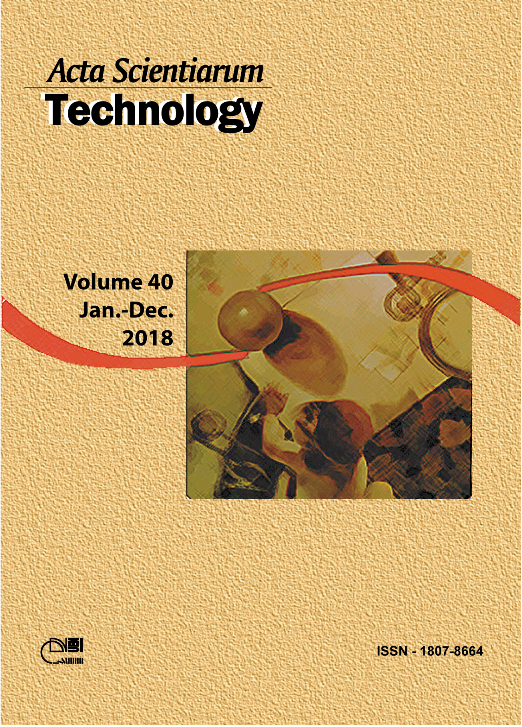<b>Production of self-healing asphalt with steel short fibres and microwave heating: pilot study
DOI:
https://doi.org/10.4025/actascitechnol.v40i1.35310Palavras-chave:
waste, bitumen, characterization, cutlery, temperature.Resumo
This pilot study aims to develop a self-healing asphalt through microwave heating, to reduce processing time, save energy and allow real commercial applications in a near future. Asphalt based composites were produced with different percentages of steel short fibers, obtained from the cutlery industry, to serve as a heat source for microwave radiation. Structural characteristics, morphology, and thermic behavior of the short steel fibers were characterized through X-ray Diffraction, X-ray Fluorescence, Scanning Electron Microscopy and Thermogravimetric Analysis, that was also used to verify the relation between mass variation and temperature of the asphalt-based composite. Temperature was monitored during micro wave heating to determine the heating rate of the composites with different percentage of fibers. Brookfield viscosity, penetration, ductility, softening point and density tests were carried out to characterize physical properties of the most representative asphalt-based composite. Results show the feasibility to use microwave heating in the production of the composite, indicating potential for future application as self-healing asphalt and pavement repair.
Â
Downloads
Downloads
Publicado
Como Citar
Edição
Seção
Licença
DECLARAÇíO DE ORIGINALIDADE E DIREITOS AUTORAIS
Declaro que o presente artigo é original, não tendo sido submetido í publicação em qualquer outro periódico nacional ou internacional, quer seja em parte ou em sua totalidade.
Os direitos autorais pertencem exclusivamente aos autores. Os direitos de licenciamento utilizados pelo periódico é a licença Creative Commons Attribution 4.0 (CC BY 4.0): são permitidos o compartilhamento (cópia e distribuição do material em qualqer meio ou formato) e adaptação (remix, transformação e criação de material a partir do conteúdo assim licenciado para quaisquer fins, inclusive comerciais.
Recomenda-se a leitura desse link para maiores informações sobre o tema: fornecimento de créditos e referências de forma correta, entre outros detalhes cruciais para uso adequado do material licenciado.



















